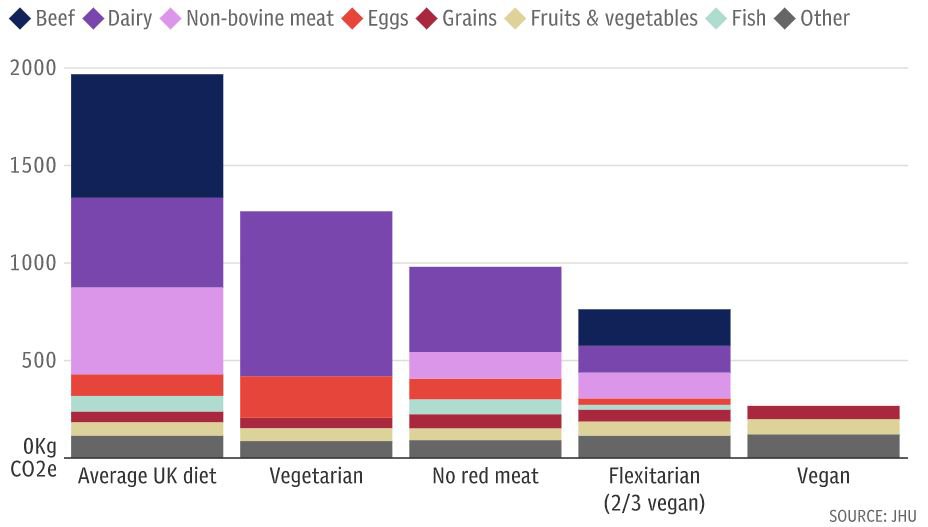Contrary to popular belief, a vegetarian diet is not the most reasonable and planet-friendly way to live.

According to a research by Johns Hopkins University (JHU) in Baltimore, America it was found out that vegetarian diets are doing more harm than good.

As per the research, when vegetarians are giving up on meat and replacing that intake with dairy products (like cheese, yogurt and whipped cream), they are only slightly improving their carbon footprint, merely a fraction.

The alternative to dairy products can be fresh fruits, crunchy veggies and eating only once a day for sourcing protein and energy to your body.

When making a steady comparison, the researchers start from the UK.

One of the paper’s authors, Dr Keeve Nachman, spoke to The Telegraph and said:
Our study found that in the UK, switching to a vegetarian diet that includes eggs and dairy is actually less helpful for reducing greenhouse gas emissions than a diet that includes meat, dairy and eggs for one of three meals, and is exclusively plant-based for the other two meals.

The research that talks about consumption patterns also sharply indicates that meat production and consumption cannot be sustained at this level for long.

















